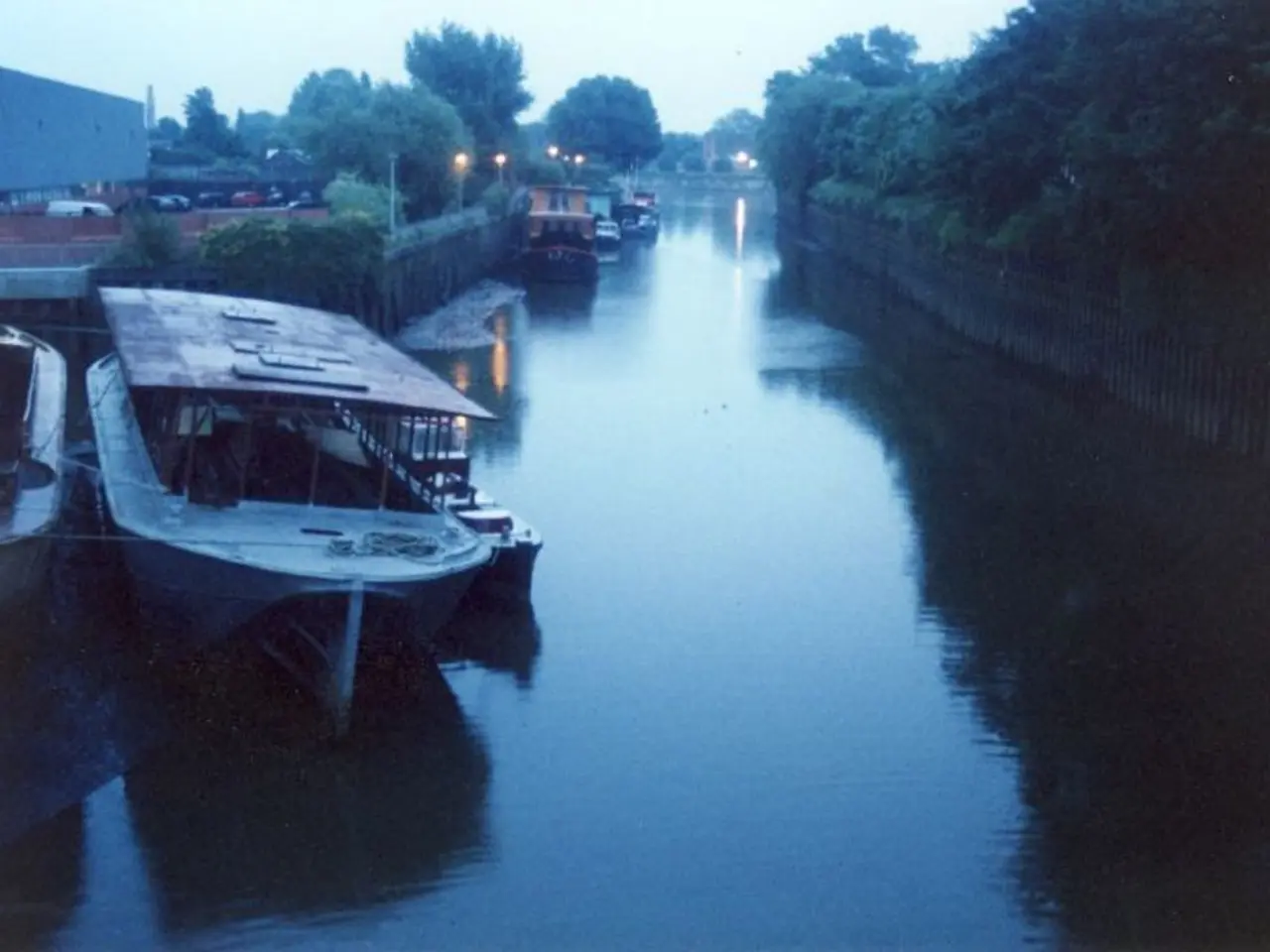The river belongs to all!
In the heart of Berlin, the demand for a publicly accessible Spree riverbank in Schoeneweide is growing, with local communities, environmental groups, and urban development advocates leading the charge. The area, historically industrial and somewhat less developed along the Spree, is ripe for revitalization, and efforts are underway to change this through urban planning initiatives.
Residents and stakeholders have been pushing for improved public access to the river to enhance recreational opportunities, promote environmental awareness, and stimulate local development. The area's limited stretches of accessible waterfront are being addressed through initiatives aimed at revitalizing the riverbanks, improving public spaces, and integrating the river more fully into the community’s daily life.
Local government and city planners have shown interest in these initiatives, recognizing the potential benefits for quality of life and sustainable urban development. However, progress can be slow due to challenges such as industrial land ownership, environmental considerations, and funding.
Claudia Leistner, the Treptow-Koepenicker district mayor, has promised to speak to the owner about a publicly accessible Spree riverbank, but no action has been taken since. Michael Kleineberg, a member of Bürgerinitiative Schöneweider Ufer, will ask Building City Councilor Leistner about the results of the agreed-upon meeting. Leistner, however, has expressed respect for property rights in the recent discussions.
Meanwhile, in Potsdam, Walter Raffauf is advocating for free waterfronts at the Griebnitzsee. Raffauf's fight for publicly accessible waterfronts is not limited to Potsdam; he has travelled to support the Schöneweider residents because initiatives for free waterfronts in Berlin and Brandenburg have been networked for years.
In Schoeneweide, Stefano Weinreich and over 200 other protesters swam along the Spree in a show of support for a riverside path. Emilia Engels and Lena Maron, residents of the neighbourhood, also participated in the protests, voicing their desire to open the waterway for everyone and have a swimmable Spree.
Tamara Wildt, a resident near Kaisersteg square, spoke at a rally, expressing her concerns about the danger of walking or cycling on Wilhelminenhofstraße and the need for a detour. Wildt suggested that free waterfront paths could extend all the way to Mitte, making it beautiful.
As of now, there is an active and ongoing demand from local communities for the creation of a publicly accessible Spree riverbank in Schoeneweide. The next meeting with the owner is scheduled for late July, and all parties involved are hoping for an agreement that satisfies everyone. The Bürgerinitiative Schöneweider Ufer is optimistic about movement on the issue of accessible waterfronts.
- Environmental science plays a significant role in the demands for a publicly accessible Spree riverbank in Schoeneweide, as the initiatives aim to promote environmental awareness and improve the river's ecosystem.
- In line with the outdoor-living trend, the proposed riverbanks revitalization includes the development of recreational spaces along the Spree, potentially fostering a unique lifestyle in Schoeneweide that embraces the river and the environment.
- As the home-and-garden sector continues to focus on sustainable urban development and eco-friendly practices, initiatives for publicly accessible waterfronts and greener spaces can serve as a stepping stone towards a more environmentally-friendly community in Schoeneweide.




